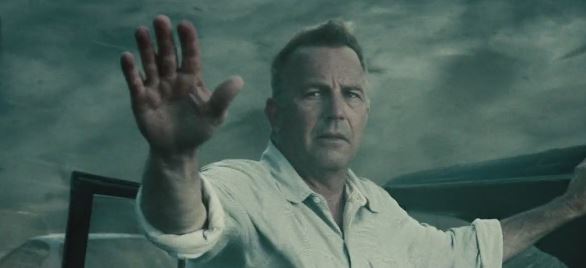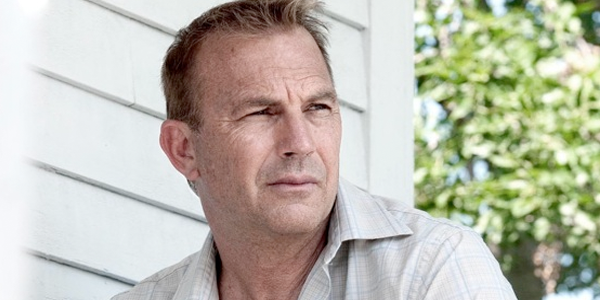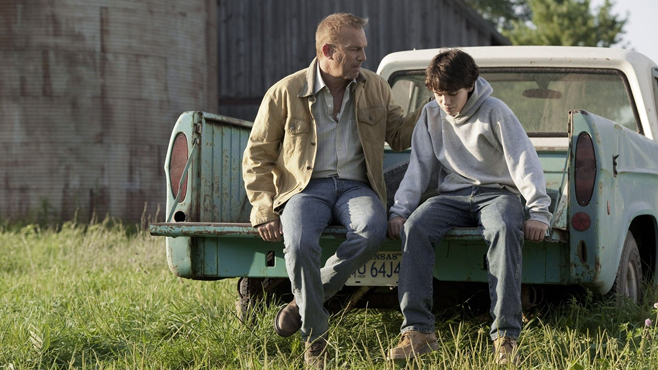10 Reasons Superman’s Dad was RIGHT.
With Batman v Superman flying into theaters soon, and the MCU about to have a Civil War, the morality and ethics of “superheroing” is coming sharply into question. As we gear up for a super-review season, a conversation made me think back to a controversial moment in Man of Steel – no, not the final fight with Zod, but earlier scenes that one acquaintance referred to as “the bitter desecration of Pa Kent”.
All right, this ISN’T a post about whether or not you liked Man of Steel: it IS a post about the bum rap Pa Kent takes over it. IMO people aren’t thinking when they condemn his view. They hang him on ONE word: “maybe”.
Clark Kent at 13: What was I supposed to do? Just let them die?
Jonathan Kent: Maybe; but there’s more at stake here than our lives or the lives of those around us. When the world… When the world finds out what you can do, it’s gonna change everything…
Everybody freaked out that Superman’s adoptive Dad told him to let children drown! How could he! What a horrible person! However, Pa Kent is a man-in-progress, working through the ethics and morality of a lot of things, including patience, timing, family, etc. I touched on the issues of Clark’s two fathers in our original MoS review, and again in our podcast… but let’s face 10 basic concepts here:
1. EVERY time Spider-man (or ANY other hero) changes clothes in a closet after a villain starts wreaking havoc, every injury or death in that interim is equivalent to the hero putting “keeping his secret” over those lives. It’s no different.
2. You could argue that a clothing change is “only a few minutes” but that doesn’t change the logical extension of the argument: the principle is the same, whether it’s 3 minutes or 30 years. The hero chooses in the moment to let someone get hurt or die in the next room while they put their underwear on the outside.
3. The reasoning and allowance for not acting “in their civvies” is often for the protection of loved ones: family first, right? If the badguys find out Matt Murdock is Daredevil, you’ll hurt Foggy or Karen… and so on, and so on. Likewise, Jonathan is thinking of the consequences of a barely teenage boy carelessly exposing his wife (and his beloved son) to harm.
4. This is also looking at THE LONG GAME. The secret identity and calculated use and timing of abilities affords them to help more people over time. Save a bus, get exposed and put in a cage by the government. Wait for the right timing: save billions…which, of course, turns out to be the case in MoS.
5. You could argue – “but he’s SUPERMAN. The government can’t hold him, he can fly around the world in minutes, he can save the bus AND the world.” Awesome: are you enjoying that hindsight? Jonathan doesn’t know this. He’s a dad who knows he has a 13-year old child (let’s say that again – a 13-year old child) with indeterminate powers, of unknown origin. We seem unable to recognize the story of a parent in the midst of a process.
6. Even with the “he’s Superman” argument, you could say that every time Clark Kent has lunch with Lois Lane, his super-hearing could pick up crimes: theft, rape, murder, etc. Basically ANY time he takes time for himself or those he cares about, he is letting someone die. One could say this about a LOT Of powered heroes, or those with monitoring technology. Do we expect the same of our other heroes? Of ourselves? Are people being hurt while we surf the internet right now?
7. Even if you want to mix in messianic themes that often occur with Superman and say “Jesus wouldn’t let a busload of kids die”… actually Jesus was incarnate for 30 years without record of miracles, and also withdrew during his 3 years for solitude. There were people he didn’t heal, help or save in the imminent sense. He raised Lazarus from the dead: could he not have saved his friend John the Baptist from beheading, or miraculously reattached it?
8. Jonathan also isn’t telling Clark “hide forever, bury your talents”; whether it’s by God or aliens, he assumes a time and reason will be revealed: apparently detractors heard “maybe” and just stopped listening. He’s advising patience.
“You are my son. But somewhere out there you have another father too, who gave you another name. And he sent you here for a reason, Clark. And even if it takes you the rest of your life you owe it to yourself to find out what that reason is.”
 9. Jonathan is internally consistent: we hear the “maybe there is time to let events take their course and not intercede” applied to a scenario with a busload of kids, but it actually turns out to be applied to Jonathan himself: he puts his mortality money where his philosophy mouth is.
9. Jonathan is internally consistent: we hear the “maybe there is time to let events take their course and not intercede” applied to a scenario with a busload of kids, but it actually turns out to be applied to Jonathan himself: he puts his mortality money where his philosophy mouth is.
10. These complex issues are something people in real-world, life-or-death situations face, especially in wartime. Sometimes a town has been sacrificed for the sake of keeping code-breaking abilities a secret; millions of other lives are saved as a result. These are hard, “greater good” decisions we don’t like to weigh, but unlike us (with our armchair quarterbacking) Jonathan Kent has been given a rare and unprecedented situation to navigate.
Finally, on a humorous note: people also whine that Jonathan’s death is dumb because he “goes back for a dog”. Well that’s not any worse than his end in the original ’78 film. Clark goads him into racing up the driveway and he has a heart attack as a result: in MoS Clark doesn’t save his dad from death, but in the classic film he causes it:)
All in all, Jonathan Kent in Man of Steel provides what I think is one of the more earnest, admittedly conflicted, but ultimately ethical versions of Jonathan Kent we’ve ever had. Instead of a one-dimensional morality PEZ dispenser, we have a very moral, very thoughtful, real human…thinking through all the implications we take for granted…for the sake of his son, his family, and the greater good.
It’s too bad he’s passed on: perhaps they should have put him in a cross-universe meeting room with Steve, Tony, Clark and Bruce and he might have moderated all their upcoming cinematic conflict issues with some fatherly experience and wisdom.





